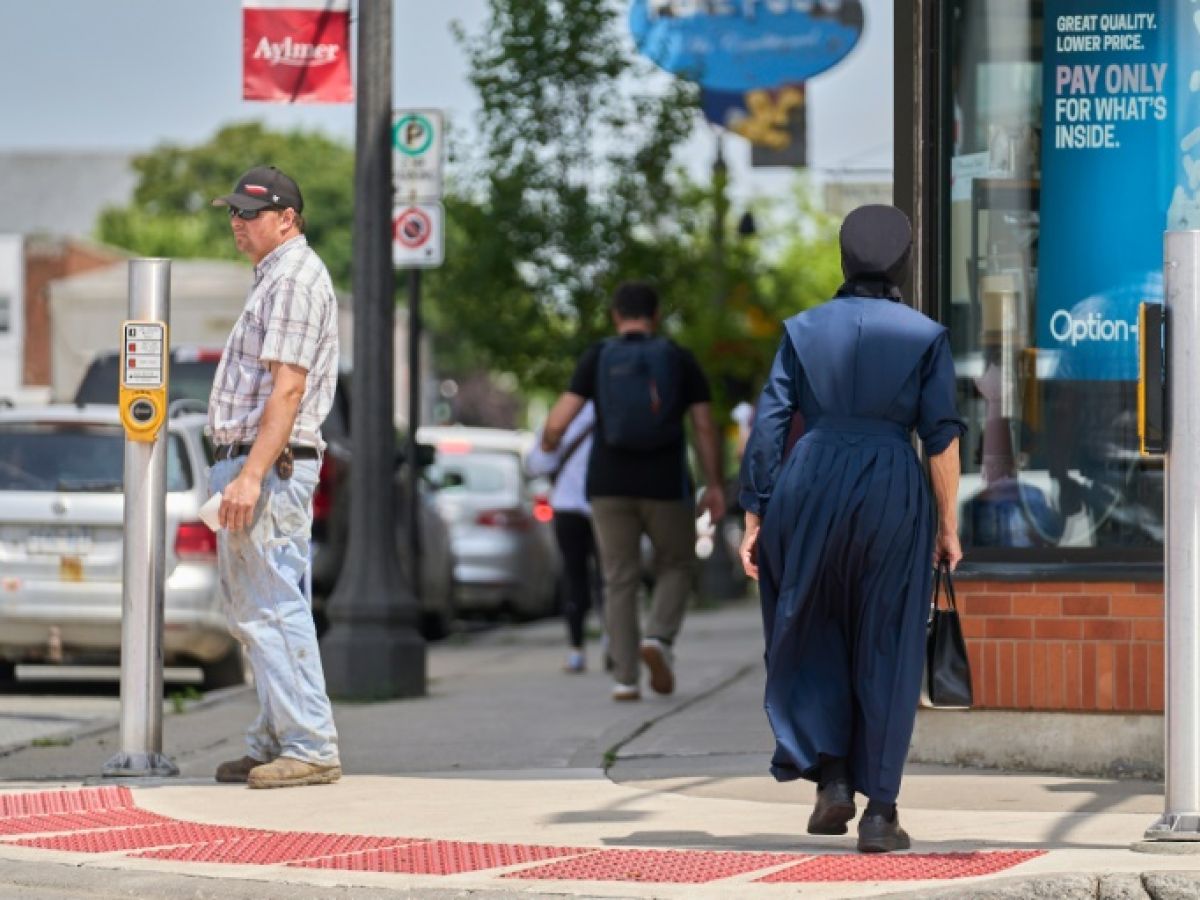In the sleepy Canadian town of Aylmer, conservative Mennonites dressed in traditional garb rub shoulders with secular residents. But divisions over vaccines, which emerged during the Covid-19 pandemic, have intensified with the current measles outbreak in the country.
Canada officially eradicated this highly contagious and serious disease in 1998.
But with 3,500 confirmed cases this year, the country of 40 million people now has more cases than the United States – which is experiencing its worst measles outbreak in more than 30 years – and any other Western country, according to World Health Organization figures, updated July 9.
Different communities are affected, but according to experts, it is anti-vaccine Anabaptist groups in the provinces of Ontario (southeast) and Alberta (west) that are contributing most to the epidemic.
Brett Hueston, who grew up in Aylmer, a bucolic town surrounded by farmland in southwestern Ontario, told AFP that before Covid, he didn't think twice about the two worldviews of his town's residents, whether secular or religious.
But that changed with the pandemic.

"I grew up thinking, perhaps naively, that we were all on the same page as a community," says the 40-year-old, whose family publishes the 145-year-old local newspaper, the Aylmer Express.
“Covid really exploited the differences that existed,” he emphasizes.
Aylmer and its 13 churches – for 8,000 inhabitants – was a veritable powder keg during the pandemic.
One of the main congregations, the Aylmer Church of God, located on a vast, manicured plot of land, defied lockdown restrictions, and its pastor, Henry Hildebrandt, paid a fine of 65,000 Canadian dollars for gathering worshippers.
"I obeyed God rather than man," he said, while acknowledging that he had knowingly broken the law.
"When measles came out, I thought I knew where this was going," says Brett Hueston.
- " Resentment " -
Michelle Barton, who heads the infectious diseases division at London Health Sciences Centre Children's Hospital in Ontario, has seen some of the most severe cases of pediatric measles this year.

It's "difficult to witness" the resurgence of a once-eradicated virus, she said, noting, however, that not all cases are necessarily linked to unvaccinated Mennonites.
For example, there have been infections among new immigrants who did not get vaccinated after settling in Canada, partly due to the severe shortage of family doctors.
But it's clear that "pockets of unvaccinated people" make the region vulnerable to measles, the doctor said, adding that the Mennonite families she has treated have very diverse positions on vaccines.
Some mothers faced with their children's illness, for example, have been open to vaccination before changing their minds, fearing the reaction of their husband or pastor.
"They don't want to go against their culture and the elders (of the church)," she explained to AFP.
Michelle Barton also has sympathy for the Mennonite community, which is facing "resentment" from some health professionals, frustrated by an epidemic that could have been avoided.
The infectious disease specialist hopes that the relationships forged between medical staff and vaccine-sceptical families can improve tolerance, and she encourages public health officials to persist in their efforts to rally religious leaders to their cause.
– “A wall of lies” –
For Alon Vaisman, an infectious disease physician at the University Health Network of Ontario, officials must persevere despite the anti-vaccine stances of some religious communities.

"From a public health perspective, we shouldn't consider anything insurmountable when it comes to vaccination campaigns," he said.
And childhood vaccination rates remain far below what they should be, making another viral outbreak, particularly of measles, possible, he says.
"We really need to redouble our efforts," he insists, while admitting that it's not easy. "We're fighting against a wall of misinformation and lies."
